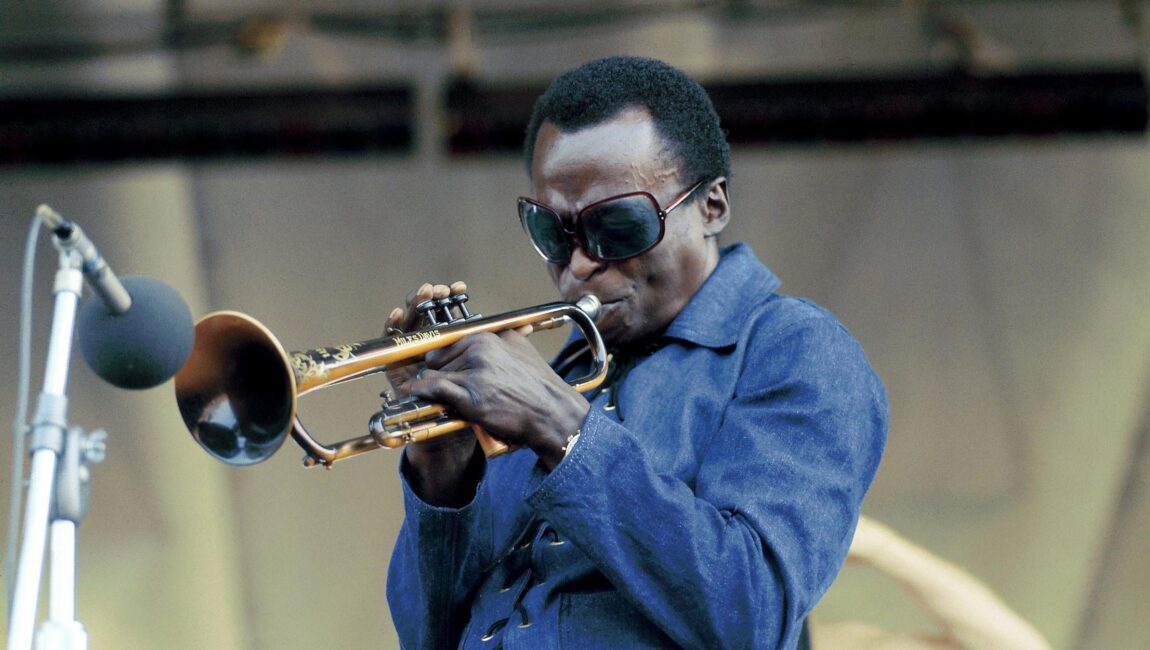Avril Lavigne
When Let Go, Avril Lavigne’s debut album, was released twenty years ago, it arrived with the force of an earthquake. The artist was immediately distinguished from contemporaries like the Backstreet Boys or the Spice Girls: rather than the “manufactured” pop that dominated the late ‘90s and early 2000s, she was an outsider crashing through with her own distinct brand of brash, bratty pop-punk. Combined with her tomboy skater style, Lavigne became an instant teen icon, though her long-term career prospects were harder to forecast. As she swapped punk for bubblegum throughout the years, Lavigne’s popularity wavered and waned, but Love Sux, her seventh studio album, manages to marry the two styles to great effect.
Lavigne establishes the album’s tone within the first ten seconds of “Cannonball”: “Like a ticking time bomb, I’m ready to explode / and motherfuckers, let’s go!” From that moment on, she exhibits unflagging energy over the course of twelve tracks, much in the way she did way back at seventeen. Her collaborators certainly add some freneticism: pop-punk heavyweight Travis Barker produced much of the album, and guest appearances from Mark Hoppus, Machine Gun Kelly, and Blackbear all keep the good times and angsty vibes rolling. Better still, they all manage to match Lavigne’s energy. MGK is a particular highlight on “Bois Lie,” a spirited duet about how everyone lies and nobody listens to one another. But regardless of who it is showing up on any given track, it’s just great to hear Lavigne work with artists whose style compliments hers so seamlessly; previous album Head Above Water, for instance, boasted a memorably confused Nicki Minaj feature, but here all of the guests here feel entirely welcome and at home.
It shouldn’t come as a surprise to anyone that the tracks on Love Sux aren’t deep or profound works, but the pleasure here, and in the genre writ large, is that they don’t need to be: “F.U.” and “Bite Me” telegraph their meanings pretty explicitly from their titles alone. What’s essential is that they are fun. For all the heartbreak and pain communicated on the album, there’s a wonderful spirit of glee that still permeates each song, one that will cause listeners to scream-sing in the car with the windows rolled down, every cut a potential anthem in one’s own personal stadium. And as always, Lavigne has a great ear for melody; songs like the title track and “Love It When You Hate Me” are earworms on the level of “Sk8er Boi.” Of course, there are also a couple of lame lines throughout that effectively date Love Sux — “all up in my feels” and “you’re gonna wish I was your wifey” come immediately to mind — but thankfully, the overall quality of the writing throughout is strong. “You’re not romantic, you for sure are hopeless” is a great kiss-off few others could deliver as successfully as Lavigne, bringing both wit and bite to her delivery. But perhaps the most impressive thing about Love Sux is the way that it manages to sound both nostalgic and contemporary: indebted to the pop-punk renaissance surely, but also a natural continuation of her early work, only — appropriately — a bit more grown-up and with a slew of swears thrown in for good measure. And it manages all this without ever sounding kitschy or becoming overly reliant on old tricks; Lavigne’s greatest trick is in managing to make everything here sound fresh and effortless. It’s the best damn thing she’s released in well over a decade, and a thrilling return to and light evolution of the sound that made her name.
Writer: Alex Clifton Section: Pop Rocks
Yeat
If one wanted to take a quick crash course on the popular aesthetics of contemporary hip-hop, they should look no further than the stylings of Yeat, a mixed-race dude from Portland who dons turbans and sounds like his vocals are the result of dumping Swedish lyrics into Google Translate and mumble-crooning the results (which might momentarily explain the overabundance of umlauts in his song titles, but then that would make him German, so we’re back to square one). Take a little of Playboi Carti’s rage music, add some Young Thug-esque oddball inflections, and top it off with some Future-lite auto-tune, and you get a general idea of what constitutes the majority of 2 Alivë, his major-label debut released a mere five months after his last project, the similarly titled Up 2 Më. Suffice to say, you don’t get much trendier than what Yeat’s been consistently doing over the past few years, but his music rarely sounds like a pastiche or a retread of what’s come before. He continues to find new and somewhat inventive ways to blend these heterogeneous elements into something far more idiosyncratic than it might first appear — a sentiment usually bolstered by his melodic, left-field pitch accentuations, turning phrases like “cum all in her hair” into “cum all in her huuuuuurrrrr” and “i’ma rip up the curb” into “i’ma rippa the cuuuurrrrrveee.” He’s also got his own lingo of sorts: “twizzy” naturally replaces twin, “tonka” is short for any high-end, wide-body SUV, and then there’s whatever the fuck “luh geeky” is supposed to mean. So not only does Yeat make music all his own, but he also speaks his own language; call it Yeatinese.
But for a rapper with an approach as singular as Yeat’s, 2 Alivë too often feels like it’s only going through the motions. While there’s a certain catchiness to the way he can string along a lot of nonsensical words and make something organically canorous — he once claimed that “if you break down” what most white rappers are talking about, “they’re not saying shit,” which is hilarious given the vacuous nature of his own lyrics — these are all superficial pleasures at best, which carry little long-lived enthusiasm and can be characterized by ephemeral excitement. There’s little to no structure guiding most of these songs, as they’re mostly a tornado of ad-libs and chorus that bleed into verse (and vice-versa) and cause everything to meld together into an indecipherable blur. Which in and of itself could be an interesting exercise in verbal command, but only if Yeat had a more expressive vocal range, which he sorely lacks. By the time you reach track nine on this 20-track LP — which contains over an hour’s worth of material — you’d be hard-pressed not to throw in the towel. But it keeps on trucking with a song called “Jump” — which has Yeat yelling “jump” over 40 times across basic-ass synth production with a basic-ass chord progression — and another track right after with a weak Among Us reference (“You is not real, you is an imposter”). If there’s anything 2 Alivë can be praised for — which has such little going for it musically that it might as well be classified as easy listening — it at least offers a strong argument that singularity doesn’t really matter when the end results are still this humdrum.
Writer: Paul Attard Section: What Would Meek Do?
Zeal & Ardor
Metal outfit Zeal & Ardor, they of many influences, just released their self-titled record, their third studio album, and it explores just as many different sounds and modes as their previous efforts. As a genre, metal can often evince too much homogeneity, often becoming rote and predictable in the wrong hands; Zeal & Ardor make no such missteps, adding some flair by mixing in flecks of folk music, jazz, soul, and just a dash of pop. But while the group continues to tread new territory as a band, cutting new swaths of exploration with each successive LP, that doesn’t always translate to treading new territory sonically, broadly speaking.
The premise of Zeal & Ardor is simple enough. Manuel Gagneux (lead singer) has been quoted as suggesting that the record follows the narrative of American slaves turning to satan instead of God. Indeed, this has been the band’s overarching premise since their inception, the concept borne from a particularly racist 4chan suggestion a decade ago. After releasing two records to plenty of scene acclaim, and following those up with a pro-BLM EP in 2020, the band, as they sit in 2022, seem uniquely poised to pull from their unusual creation/conception story to produce something truly singular. It’s unfortunate that the seemingly at-odds nature — at least as far as personas go — of their Internet edgelord origins and their activist messaging isn’t quite a concept that the band is willing to explore lyrically, but the impressionistic blend of gospel harmonies and ripping hot guitar solos does invoke imagery (and a certain emotional resonance) from both sides of their history.
This time, they also skew a little more industrial, with drum machines and synthesizers backing their already heavy sound. This further melding of sonic textures is admittedly nice to listen to, and does offer considerable differentiation from the music being produced by other groups working in these respective genres and modes. But it’s significant that Zeal & Ardor does not subtly pull from either of these touchstone genres, but rather offers something closer to mimicry of their specific sounds and styles. That’s not to deny the novelty of this particular symbiosis and the superficial appeal that it holds, but it does mean that a vein of familiarity is sometimes discernible throughout the project, more than you would hope for from a new(ish), ostensibly boundary-breaking band. In other words, the effect can occasionally feel more scrapbook than collage, and it’s in this that Zeal & Ardor lose footing on this record.
Still, not every metal band can count ZZ Top, Ministry, Ennio Morricone, and Richard Wagner as primary influences on their sound, and if these incorporations feel more like affectation than any more meaningful synthesis, the result remains distinctly fun. As long as Zeal & Ardor are the only ones doing this, their uniqueness will continue to qualify them as one of the most interesting metal bands working, even if they aren’t the most innovative.
Writer: Andrew Bosma Section: Obscure Object
Korn
A remarkably consistent band, all things considered, Korn is still with us in 2022, 14 albums deep, having never gone more than 3 years without releasing a project. At this point, the band remains pretty firmly in their lane, playing to a longstanding, devoted fanbase and a critical community based out of metal blogs and rock-centric magazines for several album cycles now (2011’s forward thinking, EDM-influenced The Path of Totality being their last notable shake-up). This more consistent, post-canonized version of Korn has persisted even up through the recent personal tragedies and tumult endured by band mastermind Jonathan Davis, who confronted fresh loss in ragged, ultra-confessional fashion on 2019’s The Nothing, and now again on the more refined Requiem. The Nothing was rather daring in the way it gave audiences uncomfortably direct access to Davis rather immediately in the wake of the untimely passing of his wife, Deven Davis, the opening track infamously concluding with the sounds of Jonathan’s unrestrained weeping.
A few years removed from that project, Requiem pulls back from such bold, emotional exclamations, maintaining a noticeable dour streak, but refocusing on sturdy songcraft. A compact, nine-song release that clocks in at a concise 32 minutes, Requiem was seemingly born from the wealth of time afforded by the Covid quarantine, in which they supposedly experimented and tweaked their aesthetic to considerable effect. But what appears on the final, released version of this album doesn’t really represent any sort of great strides in musicality or style for Korn; if anything, Requiem is surprisingly restrained, Davis still championing a deeply pessimistic worldview, but here at more of a remove, suggesting that perhaps these long, free-flowing Covid sessions more specifically shaped the project’s emotional register (after all, the vocalist/producer has long adamantly defined music-making as his therapy).
For as much as they’ve been derided over the years, Davis and the present-day members of Korn haven’t ever really lost sight of or misunderstood their music’s appeal, at worst slipping into redundancy. Requiem doesn’t contradict this pattern, a solid Korn album that effectively works the bands’ established sonic tricks, though with something of a diminished sense of imagination. Second track “Let the Dark Do the Rest” quickly falls into an easy hard rock melody that sounds more akin to the songwriting of a lesser Korn descendant like Shinedown, for instance, while closers “My Confession” and “Worst Is on Its Way” are more definitively creations of this band, but not totally distinguishable. The bulk of Requiem’s problems lie more in the latter camp than the former; that is, it often feels confident but overly safe, with Davis’ earnest, unashamed lyricism generally the highlight, retaining some of The Nothing’s bruising quality while (pleasantly) surprising with silly D&D-style imagery. It’s certainly not Korn’s most substantial project, but there remains a quality floor the reliable musicians never really dip under.
Writer: M.G. Mailloux Section: Pop Rocks
Shelby Lynne
Released first in the UK in the spring of 1999 and in the US the following January, I Am Shelby Lynne is either a couple of years late or early for a milestone anniversary, but the February 2022 reissue proves that this is always an album worth revisiting. Its history is a circuitous journey, as Lynne had recorded a series of critically lauded but poor-selling country albums over the span of a decade before re-introducing herself with a record steeped in blue-eyed soul, folk, and vintage pop. The pivot earned her a Grammy for Best New Artist more than a decade into her career and an elevated profile that, in the subsequent years, she seemed disinterested in maintaining. Lynne’s career is one characterized by enigmatic and unpredictable shifts, and, to that end, I Am… stands as its lynchpin. If it isn’t necessarily the best record in a fascinating catalog, it remains a great album that paved the way for some critical trends and major artists that followed. Opener “Your Lies,” with its multi-tracked harmony vocals and wall-of-sound layering of orchestral swells over a bluesy guitar riff, is a clear harbinger of the retro-minded soul records that would make pop stars of Mark Ronson, Amy Winehouse, Duffy, and especially Adele just a couple of years later. The exquisite mope of I Am Shelby Lynne’s more somber moments— the outro of “Leavin’,” the tense interplay in the harmonies of “Lookin’ Up”— is all over Adele’s albums, in fact; listening to I Am… after Adele has quite rightly become one of the biggest stars in pop music, it’s easy to imagine versions of these exact songs on which Lynne’s molasses-thick Alabama drawl is replaced by Adele’s immediately recognizable lilt.
Certainly, some of the credit for the aesthetic triumphs of I Am… is shared with producer Bill Bottrell, whose diverse discography laid the groundwork for a record that draws so evenly and so intuitively from a wide range of genres. The flourishes of classic soul — Dusty In Memphis has always been the too-easy shorthand for describing his production work on this album — always land as being in-service to the songs that he and Lynne co-wrote for the set, rather than a mere affectation, and he and Lynne demonstrate an adventurousness in using the full range of Lynne’s extraordinary voice. Beyond the intricacies of the harmony vocal arrangements, Lynne’s performances on I Am… remain a masterclass of interpretive skill and technical prowess: She’s no less effective crooning a ballad of longing (“Dreamsome”) than she is wailing about how “Life Is Bad.” The bonus material on the reissue is, in a pleasant surprise, equal in quality to what made the original cut of the album. “She Knows Where She Goes,” which Lynne’s sister, Allison Moorer, would go on to cover, is a knotty narrative of a woman on the verge, and she addresses Moorer directly on “Miss You Sissy,” asking, “Is your heart at peace / Do you hurt like I do,” a question fraught with their tragic family history. “Sky is Purple” opens with Lynne singing the classic hymn “Just a Closer Walk With Thee” in a full-throated falsetto, in a completely different but no less riveting context and form than the bluesy rave-up of the song she recorded for 2021’s The Servant. It’s an unexpected moment, especially coming so closely on the heels of that flat-out brilliant gospel album, but, like the whole of I Am…, it demonstrates that Shelby Lynne has never once repeated herself.
Writer: Jonathan Keefe Section: Rooted & Restless









